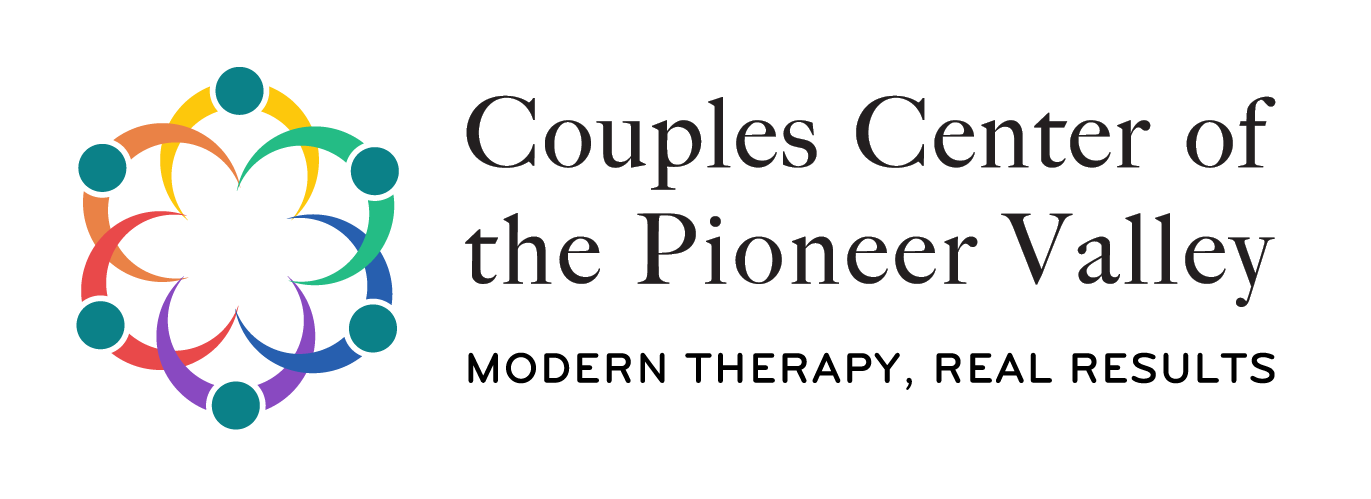Greying Divorce and Marriage Rescue: Why Marriages End in Midlife and How to Reignite the Spark
Written by Katherine Waddell, LMFT
As Co-Founders and Co-Directors of the Couples Center of the Pioneer Valley, my “work wife” Dr. Donna Gilman and I both often get asked to speak to people about couples work.
I saw my first couple in 1996 in San Francisco - quite by accident. A client I was seeing just showed up as per usual for his individual appointment, but brought his girlfriend in with him and said, “Hey, I thought I’d bring in my girlfriend so we can do some couples therapy.” Like an idiot or at least a total greenhorn, I opened the door and let them both in! In some ways, seeing that couple foretold everything I would need to know about my future as a couples therapist:
Be ready for tons of curveballs.
Expect the unexpected.
Learn to tolerate a ton of intensity, confusion, complexity, and emotional contagion in the room.
Most of all, understand that the couple’s attitude towards their differences will be the source of their strength or weakness as a couple.
I was recently interviewed for a Podcast, “Girlfriends of a Certain Age,” on the topic of Greying Divorce and Marriage Rescue. Part of why I was asked to speak about this topic is that I do a lot of Discernment Counseling, which I learned in 2012 when it was really new to the public. Discernment Counseling was developed by Bill Doherty at the University of Minnesota as a short-term protocol to help couples on the brink of divorce decide whether to end it with more clarity and confidence, or try a last full-on six-month attempt at repair. Discernment Counseling is a wonderful way to slow down a hugely important decision process and make sure divorce is not happening impulsively.
Flesche Hesch and Jessica Neighbor asked me some great questions, which you can hear on the Podcast that drops in March. Here’s a little of what I discussed.
1. Why do YOU think divorces increase as we reach midlife?
Firstly – phew! Midlife is such a vulnerable time. We are not who we used to be. Change is happening. If we had kids, they are growing up. Our bodies are changing. Illness and death seem nearer. The sands in the hourglass seem to be running out, and midlife crises are very real - and there are good reasons for them. Your main “projects”, such as raising kids, are accomplished, and often people stare at each other across the kitchen table and recognize they are strangers to each other and sometimes to themselves. “Is that all there is?” we cry. We want something different and new. Affairs occur even when people don’t go looking for them. People decide to come out of the closet if they have been hiding the fact that they are gay or nonbinary. People change careers. It’s a stormy time, and many relationships are not equipped to be flexible. Here are another few reasons:
Part of the backstory is, unless we are operating within ethically non-monogamous relationship structures, our US culture encourages us to think that we should have all our needs met by one person/partner. This impossible lie becomes obvious if it’s not already, usually by the second year in a relationship and by moving in. If you have kids, etc., it’s super obvious. Your differences feel very difficult if you are like most couples. Lack of differentiation (which is the capacity to hold your own thoughts, feelings, and desires while also holding those of another person, i.e., your partner) is a big enemy of lasting relationships. Unfortunately, no one usually teaches us about differentiation. We just feel stuck, disappointed, and helpless.
Our culture also encourages us, if we’re men, usually to prioritize our own needs or desires, sometimes to the detriment of the importance of teamwork necessary to be an active and engaged couple. On the flip side, if we grow up female, it’s the opposite. The Walkaway Wife syndrome is real and has a grounding in patriarchal structures. Women have for centuries done most of the emotional labor in families, and after raising kids, it’s most likely to be the wife who says, “I’m done here.”
Marriage is one of the hardest things anyone will ever do - and if you are doing it right, the growth it requires will often be really uncomfortable. The sad truth is many people just don’t want to do the work. It’s easier in the short term to walk away. It is very common in midlife to find that you and your partner have both turned away from each other and towards other things - which is natural, but if the couple’s relationship ongoingly is not prioritized as well, it’s very easy for stuckness, stagnancy, repetitive fights, or conflict avoidance to result.
2. How do we know we should end a marriage vs. try to save it?
Here is the question to ask: Have you put forth, both of you, a very serious effort for a good long period of time that has involved a deep personal inventory and working on your own legitimate contributions to the mess? Do you know what they are? Do you know which ones your partner is the most triggered by? Do you understand your protective behaviors and why you do them? Have you worked hard to learn new tools and skills and do different? If not, why not? Many unnecessary divorces can be prevented.
I am not neutral about whether people get divorced if they have never gotten really good help for a good long period of time and put in real effort. Today’s throwaway culture often includes throwing away relationships. Growth is extremely hard and damages our egos, and many of us would prefer not to do the work, thank you.
Let me be clear - If you are with someone who is truly deeply scarred and not willing to do their work (ongoing untreated alcohol or drug use, interpersonal violence, or a pattern of infidelity, for example) that is a legitimate reason to leave a marriage as well. Particularly if you have hung in there longer than you should and done most of the emotional work, and your partner is stubbornly refusing to do theirs.
3. Can a dying relationship be saved? How can we re-ignite the spark?
Bill Doherty says it beautifully: Divorce is usually an attempt to solve a problem that people think can’t be solved in any other way. Sometimes they are right, and it can’t, but many times when both people are willing to fight hard, it can turn around. I have seen this happen so many times.
I regularly say, it’s not the size of your problem but the size of your motivation to work on yourself that can change things. I have seen people with gigantic problems, like multiple big problems, do amazing work and turn around a seemingly hopeless situation to my great surprise; conversely, I have plenty of times seen people with relatively small problems just not engage and split up. It’s sad. I am always so amazed and touched by people who have come right to the brink and turn it around.
The key is each person deciding to work on themselves, not on their partner. Like truly understanding that the work will be a big piece of entirely letting go of the fantasy that your partner will change for you, and focusing on what you can change. That is where your integrity lies.
Interested to find out more about the Gift of Differentiation?
Join me on Friday, April 4th at 1 PM EST / 10 AM PST for a free webinar on the power of harnessing your own goals for yourself in your marriage or relationship. Find out more on our Events Page.
Stay Tuned!
The Couples Center’s very own Katherine Waddell, LMFT will be featured on a very special episode of Girlfriends of a Certain Age podcast.



